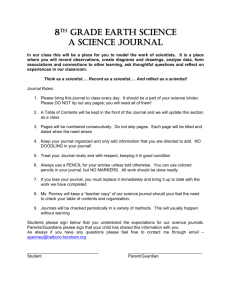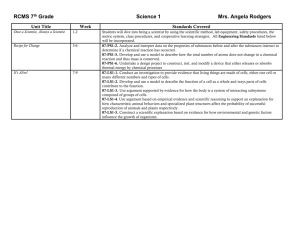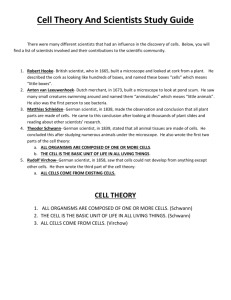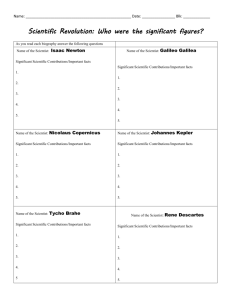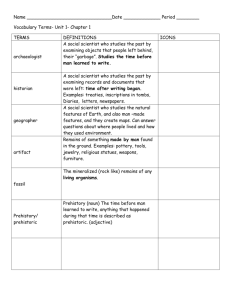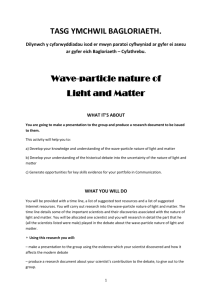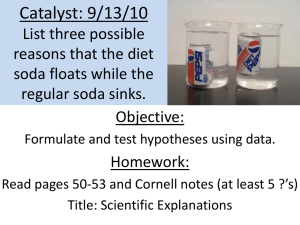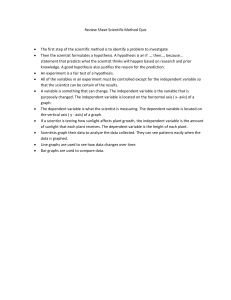Scientist Smackdown
advertisement
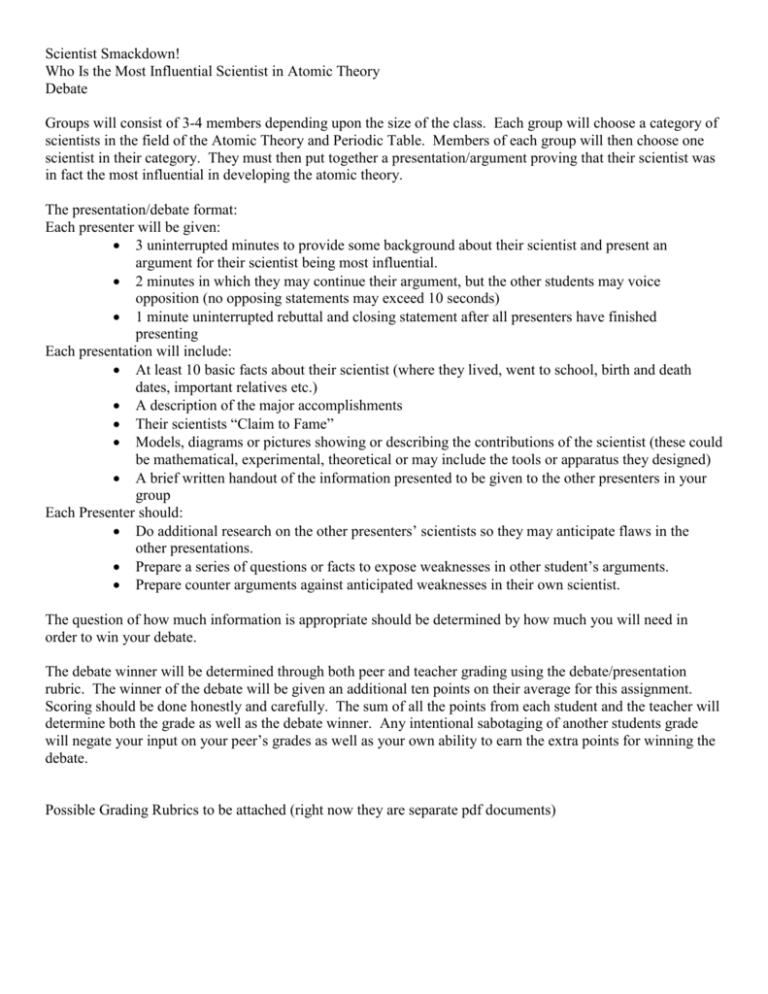
Scientist Smackdown! Who Is the Most Influential Scientist in Atomic Theory Debate Groups will consist of 3-4 members depending upon the size of the class. Each group will choose a category of scientists in the field of the Atomic Theory and Periodic Table. Members of each group will then choose one scientist in their category. They must then put together a presentation/argument proving that their scientist was in fact the most influential in developing the atomic theory. The presentation/debate format: Each presenter will be given: 3 uninterrupted minutes to provide some background about their scientist and present an argument for their scientist being most influential. 2 minutes in which they may continue their argument, but the other students may voice opposition (no opposing statements may exceed 10 seconds) 1 minute uninterrupted rebuttal and closing statement after all presenters have finished presenting Each presentation will include: At least 10 basic facts about their scientist (where they lived, went to school, birth and death dates, important relatives etc.) A description of the major accomplishments Their scientists “Claim to Fame” Models, diagrams or pictures showing or describing the contributions of the scientist (these could be mathematical, experimental, theoretical or may include the tools or apparatus they designed) A brief written handout of the information presented to be given to the other presenters in your group Each Presenter should: Do additional research on the other presenters’ scientists so they may anticipate flaws in the other presentations. Prepare a series of questions or facts to expose weaknesses in other student’s arguments. Prepare counter arguments against anticipated weaknesses in their own scientist. The question of how much information is appropriate should be determined by how much you will need in order to win your debate. The debate winner will be determined through both peer and teacher grading using the debate/presentation rubric. The winner of the debate will be given an additional ten points on their average for this assignment. Scoring should be done honestly and carefully. The sum of all the points from each student and the teacher will determine both the grade as well as the debate winner. Any intentional sabotaging of another students grade will negate your input on your peer’s grades as well as your own ability to earn the extra points for winning the debate. Possible Grading Rubrics to be attached (right now they are separate pdf documents) List of scientists grouped into categories (by color): 1. Democritus 2. Aristotle 3. John Dalton 4. Galileo Galilei 5. Joseph Proust 6. Isaac Newton 7. Charles de Coulomb 8. Michael Faraday 9. Antoine Lavoisier 10. Robert Boyle 11. Dmitri Mendeleev 12. John Newlands 13. Johann Dobereiner 14. Henry Moseley 15. George Stoney 16. Robert Millikan 17. Richard Abegg 18. Joseph John Thompson 19. William Crookes 20. Hantaro Nagaoka 21. Eugen Goldstein 22. Gilbert N. Lewis 23. Niels Bohr 24. Ernest Rutherford 25. James Chadwick 26. Frederick Soddy 27. Marie Curie 28. Pierre Curie 29. Lise Meitner 30. Hahn Strassman 31. Wilhelm Röntgen 32. Glenn T. Seaborg 33. Henri Becquerel 34. Francis Aston 35. Enrico Fermi 36. Otto Hahn 37. Hans Geiger 38. Albert Einstein 39. James Maxwell 40. Erwin Schrödinger 41. Paul A. M. Dirac 42. Wolfgang Pauli 43. Werner Heisenberg 44. Louis de Broglie 45. Max Planck
